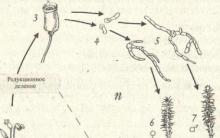So, you are an employee of a bank (perhaps another organization that does not need excess labor) and the good guys from the temporary administration no longer particularly need your services. At the same time, there is no guarantee that sooner or later you will suddenly not be needed. In this situation, in order to save a lot, management suggests either writing a statement and leaving of your own free will (spoiler: under no circumstances!), or going on downtime.
Perhaps, as was the case in my case, they will not offer anything at all. But after a flurry of work in the first days, when it was necessary to collect a bunch of documents, make inventories, make deeds of transfer, over time the workload drops significantly, so that in conditions of the strictest discipline, when freedom of movement is not given, you also want to go into downtime.
What are the features of this regime from the employee's point of view? First of all, payment for downtime is determined by Article 157 of the Labor Code of the Russian Federation. From the point of view of the law, there are two regimes - through the fault of the employee and through the fault of the employer. In the first case, 2/3 is paid from salary, in the second case - 2/3 from average earnings .
As a thorough and close study of the forums has shown, no administration, on its own initiative, agrees to admit downtime is its own fault.
There were cases when, under pressure from threats of going to the labor inspectorate or the court, they changed their decision. Complaints about the actions of the provisional administration are a separate, very interesting topic. What is the justification? They need to save money. They say that the actions of the employees led to the revocation of the bank’s license.
- The most important thing is freedom! You no longer have to go to work. “Hatching” from 8 to 17 with leaving to sign in a magazine is also no longer necessary.
- Money is paid. Not big, but believe me, it’s better than in the case of voluntary dismissal and problems in the labor market.
- Communication with employers is not lost - it is quite possible to keep abreast of the processes taking place in the credit institution. In our case, there was a parallel litigation with creditors and a decision on further actions, which was a very important issue.
Here is my downtime calculation sheet for you to study:
The downsides of downtime can be quite significant:
- Significant drop in income. Downtime is not beneficial for those who have a very significant variable portion of their earnings. That is, if you usually paid large bonuses, you can forget about them. To be fair, it should be pointed out that the new management no longer provides any bonuses for the remaining employees. So you need to count not from “warm” times, but from what is stipulated under the contract. No other way.
- According to the rules, they can be called to work at any time. This is the right of the administration. Moreover, “at any moment” implies not only the day, but also the hour. This is motivated by the fact that if an employee were, for example, busy at a factory, in his case “downtime” would be the opportunity to sit next to the machine and do nothing, because the machine, for example, broke down. The kind “uncles” from the administration, as a rule, allow you to spend downtime at home.
- No one will pay for short-term calls.
The next question is how to get the best conditions for yourself. Those in which they pay the average (simple time due to the fault of the administration), and do not annoy you with unnecessary calls to work and do not burden you with anything unnecessary. Of course, if they have the appropriate personal qualities, everyone is quite capable of “selling” this issue with the administration on their own. If you have any doubts, it would be a good idea to find yourself a lawyer or, more precisely, a lawyer who specializes in labor disputes. In this case, it will be much easier to ensure management compliance in matters regulating downtime.
Is it possible to declare downtime for laid-off workers?
Is it possible to declare downtime during the period of validity of a notice of dismissal due to a reduction in the number or staff of employees, service experts explainLegal consulting GARANTNatalya Mikhailova and Victoria Komarova.
The company has a structural unit located separately from the main office, which was closed because the owner of the rented premises refused to renew the lease agreement. It is not possible to transfer workers to another place of work; it is planned to reduce the number of employees. Due to the lack of rented premises, the company decided to declare downtime in relation to the laid-off workers. Are the employer's actions consistent with the law?
Clause 2 of Part 1 of Art. 81 of the Labor Code of the Russian Federation provides for the possibility of terminating an employment contract at the initiative of the employer in connection with a reduction in the number or staff of the organization’s employees with mandatory personal notification of the laid-off employees against signature (part two of Article 180 of the Labor Code of the Russian Federation). Since the employment relationship continues during the period of the notice of layoff, from the moment of the notice and until dismissal, the employee and the employer retain all the rights and obligations that arose for the parties on the basis of the employment contract they concluded. First of all, during the period of notice of dismissal due to a reduction in the number or staff of employees, until the day of termination of the employment contract, the employer is obliged to pay employees the wages stipulated by the previously concluded employment contract with him (Article 135 of the Labor Code of the Russian Federation).

In accordance with Art. 72.2 of the Labor Code of the Russian Federation, downtime is a temporary suspension of work for reasons of an economic, technological, technical or organizational nature. Downtime caused by the employer is subject to payment in the amount of at least 2/3 of the employee’s average salary (part one of Article 157 of the Labor Code of the Russian Federation). It should be noted that the current legislation does not establish a direct prohibition on the employer declaring downtime during the procedure for reducing the number or staff of employees. At the same time, the very definition of downtime given in Art. 72.2 of the Labor Code of the Russian Federation does not allow us to say with a sufficient degree of certainty that warning workers about the upcoming dismissal due to staff reduction does not have any impact on the possibility of declaring downtime.
Currently, judicial practice has not clearly resolved the question of under what conditions an employer’s announcement of a period of downtime in relation to employees whom the employer has warned about dismissal due to reduction is recognized as legal.
Many courts proceed from the fact that downtime is a temporary phenomenon; after its end, the employee must be provided with the work stipulated by the employment contract. In a situation where downtime is declared by the employer during a period of warning about a reduction in the number or staff of employees, the temporary nature of the suspension of work is lost, since the employer has already decided that work will not continue after a certain time (warning period). At the same time, the exclusion of a position or staff unit from the staffing table during a period of downtime or on the day when downtime was declared can serve as one of the proofs of the lack of a temporary nature of such suspension of work (resolution of the Presidium of the Moscow City Court dated May 18, 2000, appeal ruling of the Investigative Committee for civil cases of the Irkutsk Regional Court dated 05/06/2013 in case No. 33-3538/13, cassation ruling of the Investigative Committee for civil cases of the Kostroma Regional Court dated 02/13/2012 in case No. 33-36, decision of the Dzerzhinsky District Court of Perm dated 10/21/2010 (Extract ), decision of the Central District Court of Komsomolsk-on-Amur dated March 21, 2013 in case No. 2-2251/13; appeal ruling of the Investigative Committee for civil cases of the Irkutsk Regional Court dated July 30, 2013 in case No. 33-6188/13; appeal ruling IC for Civil Cases of the Murmansk Regional Court dated 06.06.2012 in case No. 33-1378; appeal ruling of the IC for Civil Cases of the Supreme Court of the Republic of Karelia dated 06.25.2013 in case No. 33-1639/2013, etc.).
In addition, one of the arguments not in favor of the employer who issued an order to impose downtime in relation to workers laid off due to layoffs may be the absence in the order of temporary suspension of work of the period (period) for which work is suspended, or the coincidence of the downtime period with the warning period dismissal of employees (decision of the Pravoberezhny District Court of Lipetsk dated 04/09/2013 in case No. 2-867/13; appeal ruling of the Investigative Committee for civil cases of the Murmansk Regional Court dated 08/13/2014 in case No. 33-2276).
At the same time, judicial practice is also replete with examples of judges showing loyalty towards an employer who declared downtime during the period of warning to workers about dismissal due to reduction, including in the case when their positions were excluded from the staffing table during the downtime period (the decision of Pravoberezhny District Court of Magnitogorsk dated November 1, 2013 in case No. 2-2761/13; appeal ruling of the Moscow City Court dated July 24, 2013 No. 11-20520/13). An analysis of such examples of judicial practice allows us to conclude that the court’s conclusion about the legality of declaring a period of downtime and paying for this period according to the rules of Art. 157 of the Labor Code of the Russian Federation largely depends on whether the employer can prove that the lack of work and, accordingly, temporary suspension of work was caused precisely by reasons of an economic, technological, technical or organizational nature. The court may also include the termination of a certain type of activity by the employer as such reasons, regardless of whether it was the result of external circumstances or was completely dependent on the actions of the employer (see, for example, the ruling of the Investigative Committee for civil cases of the Sverdlovsk Regional Court dated May 19, 2011 in the case N 33-6940/2011, appeal ruling of the Investigative Committee for civil cases of the Kirov Regional Court dated January 31, 2012 in case No. 33-334, appeal ruling of the Moscow City Court dated July 24, 2013 N 11-20520/13, decision of the Central District Court of Tula dated 10.29.2013 in case No. 2-3547/13; appeal ruling of the Investigative Committee for civil cases of the Kemerovo Regional Court dated 01.30.2014 in case No. 33-73-2014).

Thus, the final decision on the legality or illegality of the employer’s actions in this situation can only be made by the court, taking into account all the circumstances of the case. Obviously, if employees are unable to continue performing their work functions due to the employer’s lack of the right to use the premises in which the workplaces were located, then under normal circumstances the employer must issue a downtime order. But in the situation under consideration, the employer does not plan to move these jobs to another location in order for the employees to continue to perform their duties until the end of the notice period for dismissal, and it is not known whether the work carried out by the employees of the structural unit will continue to be performed by other employees of the organization during the period downtime declared in relation to employees of a structural unit. Accordingly, in the analyzed case, the risk of the court declaring the employer’s actions to declare downtime illegal cannot be completely excluded. We believe that when considering a case in court in the event of a labor dispute, the employer may be favored, for example, by the fact that the downtime was not announced immediately after the workers were warned about dismissal under clause 2 of part one of Art. 81 of the Labor Code of the Russian Federation (that is, despite the fact that the reduction was planned, the employees were provided with work for at least some time before dismissal). Also, the employer should not exclude employees’ positions from the staffing table until the day of their dismissal. In addition, the employer needs to pay special attention to the wording of the order itself on temporary suspension of work.
Instructions
The general characteristic of downtime is defined as a temporary stop of work, that is, until the financial, technical or economic situation improves. Downtime is not a rest and therefore employees must be ready at any time.
The edition of Federal Law No. 90-F3 obliges employees to pay two-thirds of the tariff rate or salary for all downtime. Since wages will be paid, the employer has the right to involve employees in other types of work during downtime, for example, cleaning the territory, painting machines or carrying out general cleaning at the enterprise. But this can only be done with the written consent of the person involved.
Labor legislation does not provide for two months' notice of downtime, since this circumstance may arise unexpectedly. But it is the employer’s direct responsibility to notify all employees by order. There is no unified form of order for these cases, so it is issued in any form. The order must indicate the reason for the downtime, the period and full names of the employees or the number of the structural unit who will not work due to the current circumstances. If no one will work at the enterprise, then specific names or divisions do not need to be indicated.
The order must also indicate the amount of payment during the downtime period. The employer has the right to include in the order a clause that employees must remain at the workplace for the entire time that the downtime period will take.
The employee responsible for maintaining the timesheet is required to enter all downtime days in the working time document with code “RP” or 31.
During the downtime period, the employer can offer employees another job, but for no more than one month. The position must have the same qualification level as it had before the temporary suspension of the enterprise or division. The order for temporary transfer is filled out using form T-5 or T-5a.
Sources:
- easy to use
- Legal gaps in downtime regulation
For the transportation of goods by road, waybills and waybills are used as documents, which are an integral part of displaying the work performed by the driver. Excessive downtime of the customer's vehicles is calculated based on the data entered by the responsible person in column 32 of the TTN.
You will need
- - waybill
Instructions
There are two sections in the waybill. The first of them: “Commodity”. In this section, information about the cargo is filled out: cargo (“ ” and “gross”), number of pieces, etc. According to the data entered in this section, inventory items are written off from the consignor, and they are capitalized on the balance sheet of the consignee.
Second section: “Transport”. It is intended to include information reflecting the operation of the customer’s vehicle. This section provides information about the time of arrival to the customer: to the shipper - for loading, to the consignee - for unloading.
In the TTN section “Other information”, in column 32, the time the vehicle is idle for loading or unloading is indicated. The data is confirmed by the signature of the responsible person and certified by a seal.
Downtime that may occur during the transportation of goods due to repairs or an accident committed by one of the road users is indicated in the section of the waybill “Special notes” and confirmed by a signature indicating the position and rank of the road police officer. The mark of downtime on the way can also be certified by specialists of the road repair section, indicating their position and surname, as well as the contact telephone number of the enterprise.
Video on the topic
Downtime is a temporary stop in the operation of an enterprise, which can be caused by various reasons (Article 72.2 of the Labor Code of the Russian Federation). The legislation does not provide clear explanations regarding the documentation of downtime, but its payment is clearly indicated in Article 157 of the Labor Code of the Russian Federation, as is keeping records of the time of direct downtime.

Instructions
The employer always strives to relieve itself of responsibility; the downtime must be recorded and documented as to its cause. To do this, an order must be drawn up. In the header of the order, enter the name of the organization in accordance with the constituent documents or the surname, first name, patronymic of the individual in accordance with the identification document, if the legal form of the enterprise is an individual entrepreneur.
Indicate the name of the city in which your company is located. Write the date of the order.
Enter the name of the document in capital letters and assign a number to the order.
Specify the subject of the order, which in this case corresponds to the downtime announcement. Enter the reason why downtime occurred at the enterprise.
Write down the start date and end date of the downtime. If the downtime is extended, a new order is issued. If the downtime lasts less than the specified period, an administrative document is also drawn up.
In the administrative part of the document, enter the last names, first names, and patronymics of the employees for whom downtime is declared, indicate the positions they occupy in accordance with the staffing table.
Workers must be present at the workplace even during downtime at the enterprise. If the order states that employees have the right not to report to work during downtime, then employees may not go to their workplace.
The recall of employees is carried out by order of the manager, drawn up along with administrative documents.
The basis for issuing this order is a memo from the head of a structural unit addressed to the director of the enterprise.
The director of the organization has the right to sign the order, who indicates his position, surname, and initials. Certify the document with the company seal.
Please familiarize the employees listed in the document with the order against signature.
Sources:
During a financial crisis, downtime may occur at an enterprise for various reasons. It should be documented in accordance with labor legislation. Downtime must be paid to employees if it happened due to the fault of the employer or for reasons that do not depend on the employees of the organization and the employer.

You will need
- - Labor Code of the Russian Federation;
- - employee documents;
- - forms of relevant documents;
- - pen;
- - seal of the organization;
- - company documents.
Instructions
If downtime should be declared in a separate structural unit, then its head needs to write a memo addressed to the director. Its content should outline the reasons that caused the downtime. The note must indicate the date on which it occurred. The director needs to review the document and, if the decision is positive, put a resolution on it, which should contain the date and signature of the company’s first person.
Compose an order in any form. In the header of the document, write the name of the organization in accordance with the charter or other constituent document or the last name, first name, patronymic of the individual, if the general public fund of the enterprise is an individual entrepreneur. Enter the title of the document in capital letters. Indicate the number and date of the order. The topic of the document must correspond to the announcement of downtime for the enterprise as a whole or for a separate structural unit. The reason for issuing an order may be short supply of material, lack of orders, and others.
In the contents of the order, indicate the last names, first names, patronymics of the employees for whom downtime has been declared, the names of the positions they occupy, and structural divisions. During downtime, employees cannot perform their job function as specified in the contract. If downtime occurred due to the fault of the employer or for reasons beyond his control, then days of downtime are paid to specialists in the amount of 2/3 of the salary, average wage (if it is announced, for example, due to a lack of applications from clients), in full (when the incident is the fault of the employer).
Specify the start and end date of the downtime. If it ends earlier or later than the date written in the order, then the director should issue a new order in which to enter the actual date of its end.
If the downtime occurred due to the fault of the employee, then he is not paid for this period, but is subject to an administrative penalty in the form of a fine.
During downtime, the employee cannot perform his job duties, so the employer has the right to allow employees not to be present at the workplace during downtime. This fact should be indicated in the order.
Certify the order with the seal of the company and the signature of the director of the organization. Familiarize employees with the document. Employees must provide a personal signature and date of review.
Sources:
- How to register and pay for downtime at an enterprise
The labor legislation of the Russian Federation provides for three options for downtime: through the fault of the employee, through the fault of the employer, and for reasons independent of both. The main difference between downtime due to the fault of an employee is that during this period he is not supposed to receive wages. Therefore, correct registration of downtime due to the fault of an employee, as the most conflicting situation, is especially important in order to protect the employer from problems with the labor inspectorate and litigation.

You will need
- - an act confirming the employee’s guilt for downtime;
- - reflection of downtime in forms T-12 and T-13;
- - an order to transfer an employee to idle time.
Instructions
As soon as you become aware of the need to transfer an employee to downtime due to his fault, draw up an act in which you document and record in as much detail as possible the circumstances that led to the downtime and indicate that it is the employee’s fault. For example, if he broke a machine due to an intentional or negligent violation of technology.
If necessary, involve a specialist who is competent to make the appropriate conclusion. The law does not require an act or examination. But if the employee goes to court or the labor inspectorate, with these documents you will have a better chance of proving your case.
Regardless of the reasons for downtime, its fact must be reflected in the unified forms T-12 and T-13, used by non-budgetary organizations to record working hours and calculate wages. Downtime due to the employee’s fault is reflected in them with the digital code “33” or the letter “VP”.
Prepare an order to transfer the employee to idle time due to the employee’s fault. There is no strict legislative form for this document; an arbitrary one is quite suitable. However, it is advisable to reflect all important circumstances in as much detail as possible.
The downtime period is not legally limited in any way. In practice, it is optimal to reflect in the order the approximate time (for example, one week to repair or replace equipment disabled by an employee) that will be required to eliminate the causes of downtime. If necessary, you can always extend the downtime or, if possible, remove the employee from it ahead of schedule. To do this, simply prepare a new corresponding order.
Sources:
- what is employee downtime
A temporary suspension of the enterprise’s work, or downtime, must be formalized in accordance with the instructions of Article No. 157 of the Labor Code of the Russian Federation, so that in the event of an inspection by the labor inspectorate, no violations on the part of the employer are revealed.
Question
The enterprise has been declared downtime for economic reasons. The order for the enterprise does not require workers to be present at the enterprise during downtime. Nevertheless, employees are periodically called by the employer to perform their labor functions. The types of rest time during which an employee is not required to be at the workplace are established in Article 107 of the Labor Code of the Russian Federation. At the same time, downtime is not indicated among them, so downtime does not count as rest time. Is it possible to fire an employee who is on downtime for absenteeism if he does not show up for work at the request of the employer?
Answer
No you can not.
Your order established that employees are not required to be at the enterprise during downtime.
Therefore, the absence of an employee at the workplace without a valid reason for more than four hours or during the entire shift during the period of downtime may become grounds for dismissal for absenteeism (,)
The rationale for this position is given below in the materials of the “Personnel System” .
“Question from practice: Should an employee be at the workplace during downtime?
Yes, I should.
The law does not require an employee to be released from the obligation to be at the workplace in case of downtime. The above is true regardless of whose fault the downtime occurred. This follows from the Labor Code of the Russian Federation.
The types of rest time during which an employee is not required to be at the workplace are established in the Labor Code of the Russian Federation. However, downtime is not indicated among them.
Thus, downtime is not rest time, but is working time during which the employee is required to be at the workplace.
The legitimacy of this position has been confirmed by the courts, see, for example, definitions,.
At the same time, downtime is not limited by law, and in fact, the suspension of work can last from several hours to several months. In the event of prolonged downtime, the employer, at its discretion, may release employees from the obligation to attend work. Such a decision should be formalized by order in any form.*
At the same time, this exemption does not relieve the employer of the obligation to pay for downtime in accordance with labor legislation ().
Question from practice: Is it possible to fire someone for absenteeism during downtime caused by the employer? The employer required employees to be at the workplace
Yes, you can.
When downtime occurs, the employer has the right to independently determine the need for employees to be present at work. If the employer has required employees to be at the workplace during the downtime period, violation of this requirement may be considered a violation of labor discipline ().











Compatibility of Aries and Sagittarius in love and marriage
How long to ferment homemade wine
Task 20 Unified State Exam Russian examples
Н, НН in suffixes of adjectives and participles
Demo version of the exam social studies